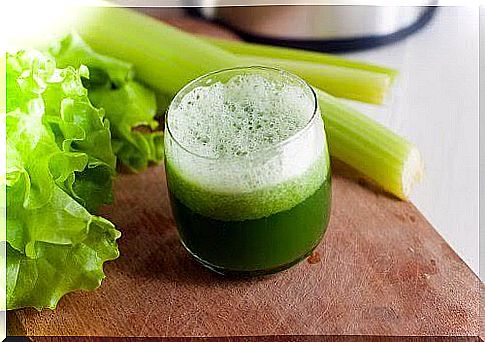Benefits Of Celery During Pregnancy

Most specialists suggest that future mothers consume vegetables in the diet and celery is considered one of the most nutritious due to the important benefits it provides in the healthy development of the baby.
Celery is one of the most popular and preferred vegetables by grandmothers, to prepare those rich broths and soups that feed their loved ones. In addition, it is known for its applications in gastronomy and medicine.
It also has important nutritional contributions during pregnancy, this helps the baby to gestate properly within the womb during those important nine months.
Benefits of consuming celery during pregnancy
Future breasts should consider consumption as soon as the gestational process begins, for this reason, we present the main benefits of celery during pregnancy:
- High content of vitamins. Consuming it during pregnancy is excellent for both the mother and the unborn baby. Its high content of vitamin C improves the functioning of the immune system, as stated by research published in the journal Biochemical Society Transactions . The folic acid that this vegetable contains is indicated to prevent congenital malformations.
- Rich in minerals. Celery contains important minerals such as magnesium and calcium, which are mainly responsible for supplying fluids to the embryo and maintaining blood pressure (preventing hypertension).
- Tryptophan This vegetable also contains tryptophan, which is an essential amino acid for generating serotonin, according to scientific literature. This substance is one of the neurotransmitters responsible for regulating sleep and mood in general.
- A great source of fiber. Incorporating celery into your diet helps prevent hemorrhoids and constipation during pregnancy. Additionally, the intake of celery generates a “feeling of fullness”, which prevents excessive consumption of food, the elevation of blood sugar levels and being overweight.
Contraindications of celery in pregnancy
According to some scientific research, such as that carried out at the University of Maryland Medical Center, the seeds of its plant are highly harmful to the baby.
Deliberate consumption of celery seeds increases the chances of uterine bleeding and / or uterine contractions that could lead to miscarriage.
It is completely normal to be distressed at the knowledge that a part of the celery (seeds) can compromise the unborn baby. However, we must bear in mind that the consumption of its stem has great properties for gestational development.
Tips for Eating Celery During Pregnancy

Not all people have the same eating habits and the same style of eating, so here are some tips to eat celery and ensure the health of the baby in the womb:
Shakes
Preparing a smoothie with celery can be a bit complicated, but to make it rich and delicious for the mother’s palate, you can add fruits, such as pineapple, apple, melon, even other vegetables, such as cucumber or spinach among others.
Raw celery
Any vegetable is better to consume raw since it is the best way to take advantage of all its components, vitamins and minerals.
Salads and sauces
In this way, you can add the stem and small leaves to a rich salad. Also great for making light sauces and then spreading them on bread or crackers.
Soups and creams
Celery gives the soup a very good flavor and is the main food dish that pregnant women should consume, since it is a great source of vitamins, proteins and minerals.
Something that should not be forgotten is to wash the celery very well before consuming it to avoid the spread of diseases, toxoplasmosis and intestinal parasites.
The vegetable must be previously washed with vinegar and plenty of clear water before eating.
After pregnancy, celery is important too!

Celery is not only suitable for the future mother during the gestation period, its intake is also highly recommended during the breastfeeding period to continue providing all the nutrients to the newborn.
It is also beneficial to include it in the baby’s diet from the age of 9 months when the little one begins to eat his first baby food or what is known as “complementary feeding”. To help them grow healthy, it is best to include it in their diet as a puree or add it to soups and / or juices.










